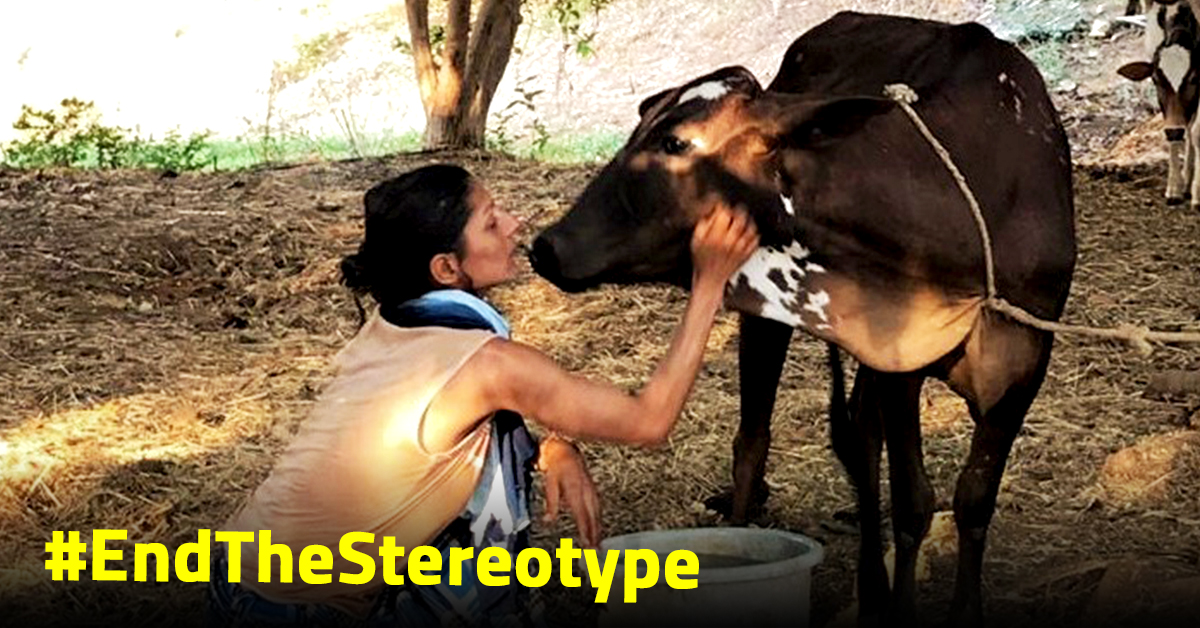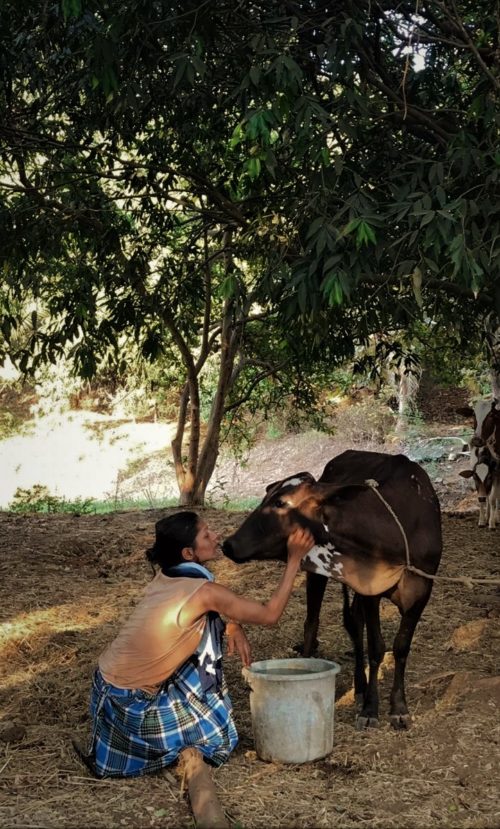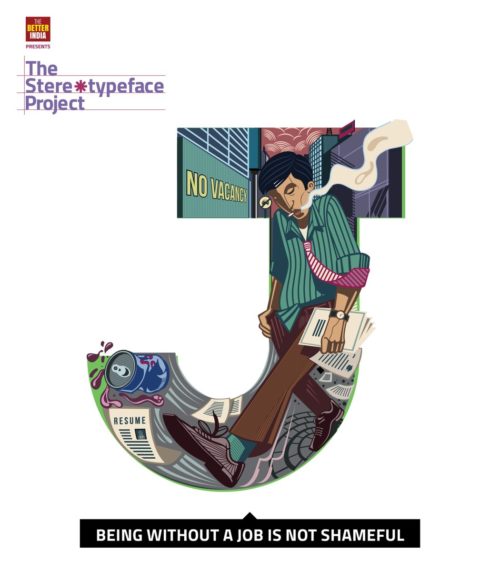Woman Challenges Conventional Norms of Work, Quits US Job to Build Organic Farm!
"We should work with our hands once again. Feel what it’s like to touch the soil, grow a plant, prepare your bread, or even walk with your dog for that matter."

It is not easy to leave a well-paying profession and start something of your own, but ten years ago, Gaytri Bhatia, an environmental analyst with the United States Environmental Protection Agency in Boston, decided to do just that.
Today, she is a full-time organic farmer and entrepreneur, who owns a 10-acre plot about a three-hour drive northeast of Mumbai.
This plot is called Vrindavan after the ancient forest in Hindu mythology where Krishna spent his childhood days.

“Over my years of (environmental) consultancy, I recognised that a paradigm shift was needed in the way we treated ourselves and the earth, one that could be scaled up only from the roots. Working in environmental analyses prepared me for the extent of the damage being done to humanity via damage of the earth in our industrial-driven lifestyles. Farming was the way to grow this change (for me),” this first generation farmer told us.
When she arrived, Vrindavan was a mango orchard with some coconuts, cashew nuts, and black pepper crops.
Today, along with the mangoes, banana, papaya, mulberry, chikoo, pineapple, jackfruit, wild berries, cashew apples, heirloom tomatoes among others also grow on the farm. Spices like turmeric, ginger, pepper, greens like lettuce, baby spinach, basil, native sorrel, moringa, and amaranth and vegetables like bottle gourd, papaya, pumpkin, tomatillos, brinjal, yam, lemongrass—it’s an almost never-ending list.
Gaytri now produces and sells clean food, freshly processed products, conserves heirloom seeds and preserves them in seed banks.
“We grow the crop during its seasonal cycle annually to maintain its presence in our bank. Seeds are stored in ash in glass jars. On a small scale, we share seeds with neighbouring farmers.” she adds.
The several thousand kilos of mangoes harvested from her farm are sold to top restaurants in Mumbai like the Smoke House Deli, Kala Ghoda Cafe, The Pantry, and Olive.
“We bring produce and products to Bombay, our closest market. Based on what it [amount] is (the scale of each of our crops varies), we serve everyone we can, from families to restaurants,” she said.
And all of this is done organically.

Gaytri doesn’t always use indigenous seeds, but they are always open-pollinated and from farmers, not labs.
She has four cows, and their excreta is the crucial ingredient in home brewed bio fertilisers, made from cow dung, cow urine, fish excreta, algae, dried leaves, and flora from the farm. Fungicides are made from garlic and insecticide is made from neem.
Gaytri works alongside eight people, all locals from the village, on the farm. The locals work diligently from 10 am to 6 pm, while she singlehandedly takes care of the work after dusk.

“We should work with our hands once again. Feel what it’s like to touch the soil, grow a plant, prepare your bread, or even walk with your dog for that matter. And for agriculturalists, we should take back the lands. Take back the seed. Once again, become responsible. In this, is freedom,” Gaytri finishes.
As Gaytri’s story illustrates, the stereotypical definition of a job as a ‘9 to 5’ activity is not necessarily true anymore.
The world, as we know it, is changing, and this includes the ways and means to earn and subsist. Today, the parameters for success are unquantifiable, so instead of giving up on people who don’t hold a ‘regular job’ or associate the same with failure, isn’t it better to leave them to write their own destinies?
A little more support, a little less shame, will surely start bringing things back to a healthy balance.
#EndTheStereotype
This story is part of The Stereotypeface Project, an initiative by The Better India that challenges 26 stereotypes, which continue to exist even today. We are showcasing these stereotypes through all the letters of the English language alphabet.
Stereotypes exist everywhere — they are passed down over generations. Instead of embracing and celebrating what makes us unique, we stand divided because of them!
We’ve unconsciously learned to stereotype, now let’s consciously #EndTheStereotype.
Visit www.stereotypes.in to know more about the campaign and support the effort!
How can you support this campaign?

1. Follow this thread on Twitter or Facebook
2. Re-Tweet / Re-share the stereotypeface that you would like to put an end to
3. Use #EndTheStereotype and tag @TheBetterIndia
(Edited by Gayatri Mishra)
Like this story? Or have something to share?
Write to us: [email protected]
Connect with us on Facebook and Twitter
If you found our stories insightful, informative, or even just enjoyable, we invite you to consider making a voluntary payment to support the work we do at The Better India. Your contribution helps us continue producing quality content that educates, inspires, and drives positive change.
Choose one of the payment options below for your contribution-
By paying for the stories you value, you directly contribute to sustaining our efforts focused on making a difference in the world. Together, let’s ensure that impactful stories continue to be told and shared, enriching lives and communities alike.
Thank you for your support. Here are some frequently asked questions you might find helpful to know why you are contributing?


This story made me
- 97
- 121
- 89
- 167










